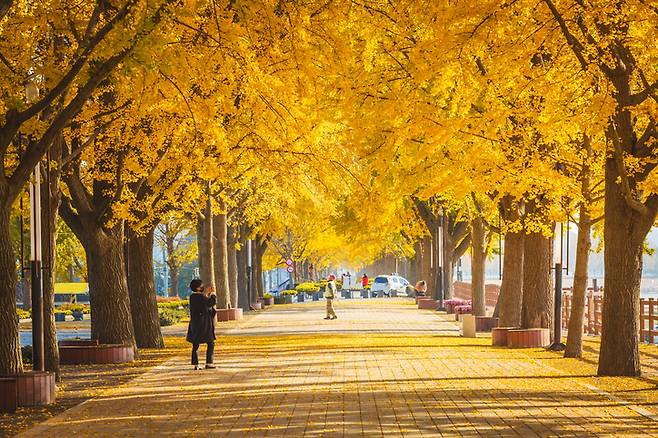Seoul begins preemptive strike on ginkgo trees before nuts become stink bombs
이 글자크기로 변경됩니다.
(예시) 가장 빠른 뉴스가 있고 다양한 정보, 쌍방향 소통이 숨쉬는 다음뉴스를 만나보세요. 다음뉴스는 국내외 주요이슈와 실시간 속보, 문화생활 및 다양한 분야의 뉴스를 입체적으로 전달하고 있습니다.

The refreshing autumn breeze offers a welcome respite from the sweltering summer, but it also heralds the season of smelly ginkgo fruits.
To tackle the annual nuisance of rotting ginkgo nuts stinking out the streets, the Seoul Metropolitan Government launched Monday a city-wide initiative in which specialized personnel will remove the nuts from trees before they have a chance to fall and rot.
The operation, spanning all 25 districts of the city, targets female ginkgo trees, which account for about a quarter of the city's 102,794 ginkgo trees.
Specialized teams will use special equipment to shake the trees and collect the nuts, focusing on heavily trafficked areas, according to city officials. The teams will also be dispatched in response to citizen complaints about ginkgo trees.
The removal operation is underway in some districts already, starting with Secho-gu earlier this month, although the full-scale operation starts this week. The city plans to complete the process by the end of October.
Once the collected seeds, which are edible, pass a safety inspection by the Seoul Research Institute of Public Health and Environment, they will be distributed to senior citizen communities and social welfare organizations.

By No Kyung-min(minmin@heraldcorp.com)
Copyright © 코리아헤럴드. 무단전재 및 재배포 금지.